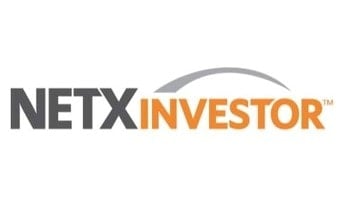When it comes to thinking about how to do a better job with their money, some people think only about their portfolios. Unfortunately, financial advisors sometimes make the same mistake. Some advisors think of themselves almost exclusively as investment professionals, and by doing so, miss very significant opportunities to improve their clients’ financial situation in other ways: by saving them money, by helping them make better use of their money, and by helping them enhance opportunities to earn money.
There are many, many different ways in which a knowledgable financial advisor can help his/her clients build a better and more financially secure life. I would like to offer up a couple of interesting examples – among many possible – of how advice completely unrelated to a client’s portfolio can be very helpful to a client’s overall financial health.
Beware The Timeshare!
There are a number of online sites where professional advisors share questions, tips, tricks and concerns. They are a great source of wisdom for all of us in the industry, and by extension, for our clients. Several months ago I was reading through some of the posts on such a site and came across a fascinating chain of woe regarding timeshares. If you’ve ever been tempted to buy one (I haven’t), or if you already have and are being tempted to “upgrade” one you already own, what follows bears some thought.
The discussion chain began when an advisor wrote in to describe his clients’ situation. They were in their late 70’s and were ‘slowing down’ after many years of active travel. They had purchased a nationally marketed timeshare program and had been persuaded to upgrade several times during their retirement, to the point where they were currently participating in the company’s (expensive) “Presidential Program.” The problem was that they no longer wished to spend most of their time travelling, plus they had begun to realize that it was time for them to cut down somewhat on their overall spending. One would think that this would present a simple situation: they should either sell or resign their timeshare program so they could realign their financial resources toward their current priorities.
The problem seemed to be that it appeared to be virtually impossible to get out of one of these programs once you got in.
The couple involved tried to sell their participation back to the timeshare company. The timeshare operator was not interested – even in accepting it back for nothing. The timeshare company’s only interest was in collecting the ongoing maintenance fees in perpetuity.
Other advisors wrote in to describe similar situations in which clients had simply stopped paying the fees because they could no longer afford them. What did the timeshare company do? It refused to foreclose on the property. Apparently their practice was to continue to charge the fees and to try to collect them eventually – along with delinquincy charges – from the estate! According to the advisors who contributed to the discussion, the timeshare companies they have dealt with will turn the matter over the a collection agency but will not foreclose, since that would limit their ability to collect future fees.
Could one simply give the timeshare away, an advisor wrote in to ask? Or donate it to charity? It seems that this, too, is difficult. Some charity transfer companies actually charge very significant fees for the privilege of “donating”a week of timeshare time. Other advisors pointed out that the IRS has become skeptical of allowing a tax deduction for such donations and that it may very well trigger a tax audit.
Still other advisors wrote in to share related cautionary tales of unscrupulous middlemen who offered to sell timeshares on behalf of owners desperate to be rid of ongoing timeshare fees, only to turn around and charge them thosands of dollars for doing nothing in the end.
In light of the facts, one commented, these contracts appear not to be assets at all, but rather long-term liabilities!
All in all, there were only a couple of positive notes. The first was that, if you feel you must own one of these things, there is a group of timeshare owners that appears to be helpful when it comes to possible sales. It is called TUG, or the Timeshare User’s Group, www.tug2.net, if you are interested.
The second – and best in my opinion – was the reminder that forewarned is forearmed. This is not to say that one should never consider buying a timeshare, but rather that such a purchase should be considered prudently and away from the glamour and marketing hype that generally accompanies it. A potential buyer should insist on a clearly laid out, contractually enforceable, and well understood exit strategy as a prerequisite to the purchase of any timeshare. Period.
If you can’t get out, you shouldn’t get in in the first place, for any price.
Helping Business Owners Unlock Their Wealth
Many successful small business owners have a big problem. Their asset base is extremely undiversified because most of their wealth is tied up in the company they own and manage. And ironically, if the company is profitable and growing, this situation is likely to be exacerbated. The cash needs of a growing business (along with the reqirements of bank lenders) may prevent the owner from taking cash out of the business in order to diversify his holdings. This makes the entrepreneur extremely vulnerable to sudden or unanticipated changes in business conditions on the one hand, and utterly dependent for their retirement planning on a single liquidity event, i.e., the sale of their business.
Is there a way for business owners to take some risk off the table by diversifying their holdings, by creating an independent investment portfolio that will better prepare them for retirement and sustain them if their business runs into trouble?
Creative Financial Alternatives
Traditional solutions for allowing a business owner to get more liquid access to the weath in his business – a venture capitalist or a bank – come with well-known disadvantages. A typical venture capitalist is going to want equity and control in return for financing, and is typically looking for a 50% annualized rate of return on the money. A bank, on the other hand, wants to see collateral greater than the amount of the loan, which makes it difficult as a source of growth capital.
Luckily, markets are creative and respond to customer needs. In the past five years, ever since banks tightened up on credit due to pressure from regulators in the aftermath of the 2008-2009 financial crisis, two different financing alternatives for businesses have been taking shape.
The first a non-regulated bank or “nonbank bank.” These companies don’t fall under typical banking regulatory constraints because they get their money from pension funds, insurance companies, hedge funds, endowments and/or family offices rather than from depositors. A loan from a nonbank bank may require a first lien on a company’s assets, but it may also be available in cases where a regular bank would refuse to lend at all.
Mezzanine Financing: Stepping Stone To A Better Future?
Another type of lender that has grown even faster since the credit market meltdown. These are known as “business development firms” or “mezzanine financing” firms. They generally operate like real estate investment trusts – REITs – in that they distribute at least 95% of their cash flow to shareholders. What’s different about them is that they raise money to lend to ongoing businesses either from the public markets or from large financial institutions, including major brokerage firms.
The loans provided through mezzanine financing are different from traditional lending, in three ways.
First, these loans are subordinated to any bank debt the company may hold, which means the bank loan is paid back first if the borrower is having trouble making its payments.
Second, the loan provided by the mezzanine finance company doesn’t require a personal guarantee by the business owner.
Third, the mezzanine financing doesn’t require fixed repayments on a schedule.
Let’s say that the business owner is in his 50s, has significant wealth invested in the business, and would like to run it for another ten years before retiring. How would this work?
If the business already has a bank loan, the mezzanine fund takes a position behind them, so the bank is actually in a safer position than previously. The entrepreneur could pay himself an S-distribution (in the case of an S-corp) or a dividend – whatever is appropriate for the particular business – and then use that money to invest in a diversified retirement portfolio.
The business owner now has personal wealth outside the business, with no strings attached and no guarantees on the mezzanine money. If the business suffers a setback, or if the eventual sale is not as successful as the owner anticipated, there is at least an alternative source of personal retirement funding.
What does this cost? The amortization structure for the mezzanine loan can be structured flexibly, from a 5 – 6 year grace period for principal payments, to a payback structure based on available cash flow, typically between 30% and 50%. The interest rate currently can be as high as 10% – 16%, but it may not all be currently payable and some could be added back to principal.
Is It Worth The Cost?
These interest and other charges may seem high – until one compares them with the alternatives. Professionals who work in the mezzanine financing business report that they are doing a lot of business these days. Entrepreneurs respond very positively to the ability to take money out of their businesses, no strings attached, and without having to give up any ownership or put somebody on the board to control the company.
The important idea is that new forms of financing are now available, and actually competing against each other to provide funding. Banks and venture capitalists are no longer the only op-tions available to independent business owners. This is fantastic news for entrepreneurs because now they can consider bringing in growth capital to their businesses that doesn’t dilute their ownership and control.


